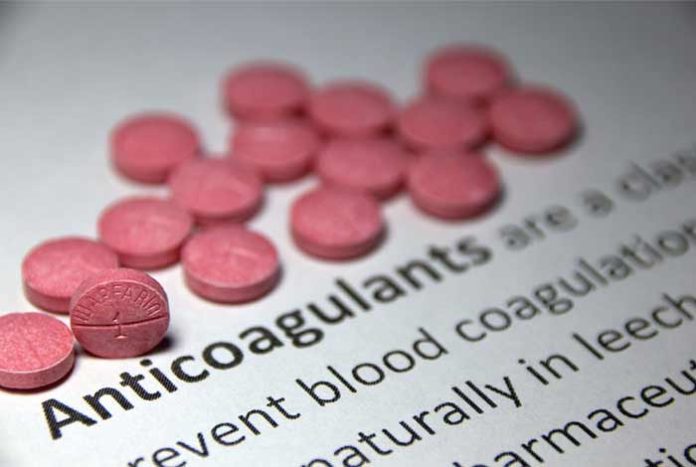
Warfarin is a drug that is used in heart patients when they suffer a stroke or heart attack. But according to a new study this drug is underrated for its ability to reduce cancer risk, especially in patients aged 50 years or older.
The study author, James B. Lorens, Ph.D., University of Bergen, Norway, and his team reported these findings. The study was published in the journal, JAMA Internal Medicine.
Warfarin prevents the formation by blood clots by thinning the blood. It prevents the production of vitamin K, which is required for the formation of blood clots. Research suggested that warfarin has the potential to prevent cancer also.
During the research, it was found that warfarin blocks enzyme, tyrosine kinase – an AXL receptor – by preventing the formation of a protein, called Gas6, which depends on vitamin K. This stops the cancer cells from spreading.
Reduction of cancer risk by 16% :
The research team examined data from around 12 lakh Norwegian people from January 1924 to December 1954. Out of the study group, females comprised of more than half of the total number of study participants.
Information was collected from participants for their warfarin use from January 2004 to December 2012. Cancer incidence was also studied for the group. Out of the total participants, around 92,000 were taking warfarin.
It was found by the researchers that the use of warfarin drug reduced the chances of getting cancer by 16%. The study indicated that Warfarin was associated with reduction in prostate cancer by 31%, reduction in lung cancer by 20% and reduction in breast cancer by 10%.
Individuals, who had been prescribed the drug, were at lower risk of development of all types of cancers.
Cancer protection from Warfarin:
The findings of the study are important because choosing Warfarin as medication for patients requiring anticoagulant additionally provides protection from cancer.
However, the study has its own limitations. For example, the data regarding use of other medications were not considered. Other factors like diet, smoking, weight that could result in the formation of cancer were also not analyzed in the study. Thus, more studies are needed to better understand how warfarin offers protection against cancer.




